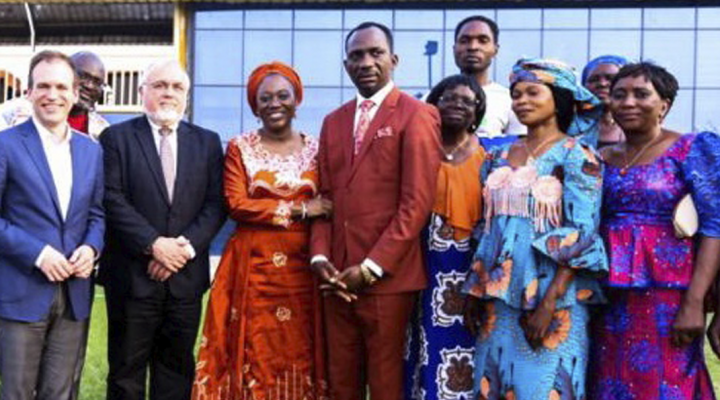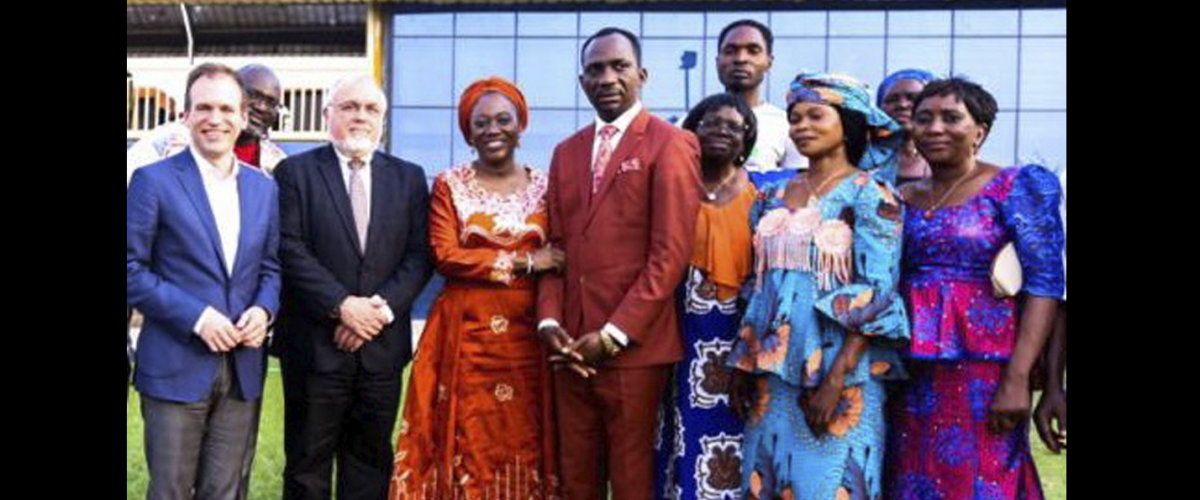The U.S. State Department should have included India and Nigeria in its annual list of countries that fail to protect religious liberty, according to a key religious freedom watchdog.
The State Department annually assesses countries based on their levels of religious freedom or belief. This year, it designated 12 Countries of Particular Concern for engaging in or tolerating “particularly severe violations of religious freedom.”
Countries on that list are Burma, China, Cuba, Eritrea, Iran, Nicaragua, North Korea, Pakistan, Russia, Saudi Arabia, Tajikistan and Turkmenistan.
But some observers, including the U.S. Commission on International Religious Freedom (USCIRF), expressed disappointment with the State Department’s decision to omit India and Nigeria from the list.
Emmanuel Ogebe, a Nigerian-born, U.S.-based religious rights activist, said Nigeria deserves to be classified as a Country of Particular Concern because of its violent religious record.
For example, he cited the recent killing of about 200 people by suspected Islamist terrorists who invaded Christian villages in Plateau State, in northern Nigeria, on Christmas Eve.
Reacting to the Plateau killings, Daniel Okoh, president of the Christian Association of Nigeria, called on security agents to ensure such acts do not happen again.
“We mourn with the families, friends and communities who tragically lost their loved ones. … We stand with you at this time of grief, and our prayers go out to you for comfort and strength,” Okoh said. “The loss of lives, including those of our brethren in the Baptist church in Chirang village, is a devastating blow to our collective peace and unity.”
USCIRF also cited the Plateau massacre as evidence to counter the State Department’s decision not to name Nigeria.
“In addition to perpetrating egregious religious freedom violations within its borders, the (Nigerian) government has increased its transnational repression activities targeting religious minorities abroad and those advocating on their behalf.”
“This is just the latest example of deadly violence against religious communities in Nigeria that even the State Department has condemned,” USCIRF said in a statement attributed to Chair Abraham Cooper and Vice Chair Frederick Davie.
A majority of USCIRF commissioners understand Nigeria’s ethno-religious conflagrations because they have traveled there, they said, adding threats to freedom of religion or belief have deadly implications for religious communities in the country.
Regarding India, Cooper and Davie said, “In addition to perpetrating egregious religious freedom violations within its borders, the government has increased its transnational repression activities targeting religious minorities abroad and those advocating on their behalf.”
While rejecting the State Department’s decision to omit Nigeria and India as Countries of Particular Concern, they vowed to persist. “We will not be deterred and will continue our role as a congressionally mandated watchdog to ensure the U.S. government prioritizes religious freedom as a key component of U.S. foreign policy,” they said.
USCIRF expressed its extreme disappointment and called for a congressional hearing on the State Department’s nondesignation of Nigeria and India, “despite both countries repeatedly meeting the legal standard.”
Although USCIRF did not get its wish on India and Nigeria, it acknowledged the State Department accepted its recommendation to include Azerbaijan on its Special Watch List, although it was disappointed that the State Department did not include its other recommendations.
Ogebe, the Nigerian-born activist, called the State Department’s decision a travesty of justice. He and Cooper traveled to Nigeria in 2020 and met victims of religious violence, and he supports Cooper’s position in rejecting the State Department’s decision.
In a letter written after the State Department decided not to include Nigeria, Ogebe told Cooper: “Your request for a congressional inquiry into this is all the more crucial because of the problematic, faulty and false State Dept narrative that (religious persecution in Nigeria) is a ‘clash’ ‘competition over resources’ and consequence of climate change.”
The State Department’s decision “disrespect(s) all the martyrs of religious persecution, those imprisoned, raped and otherwise, and it is especially a disservice to American humanitarians like you who have risked your lives to travel to Nigeria and to speak truth to power,” Ogebe added.
Nigeria merits a place on the Countries of Particular Concern list, he stressed. Nigeria “has been the deadliest country in the world for Christians for 12 out of the last 13 years,” he said, pointing out Nigeria had consistently appeared on the list for 20 years.
“The U.S. continuously fails to acknowledge that on average, a Christian is killed every two hours (in Nigeria), making it the deadliest country for Christians on the planet.”
“In 2020, Nigeria attained the highest violator group of Country of Particular Concern but since then mysteriously disappeared, not because conditions improved in Nigeria like Sudan, but because of a change in U.S. administration,” Ogebe said. “The U.S. continuously fails to acknowledge that on average, a Christian is killed every two hours (in Nigeria), making it the deadliest country for Christians on the planet. …
“Very few things on the planet show America’s betrayal of the present-day martyrs of the Christian faith than the inaction, nonrecognition and, in fact, active suppression of the harsh reality of death, death and more death in Nigeria,” added Pastor William Devlin, who recently traveled with Ogebe to Nigeria.
While the world still was grappling with what happened in Plateau State, news emerged of another attack that killed six church members including a pastor in Gaidam, Yobe State, in northern Nigeria. Apart from the Plateau killings and another attack on a southeast Catholic church that killed three Christians, “we now have a 2024 northeast church attack killing at least six Christians,” Ogebe said.
Sean Nelson, legal counsel for global religious freedom at ADF International, also said Nigeria owns a deplorable violent record that qualifies it to be on the Countries of Particular Concern list, and the failure to be categorized is deeply concerning.
“The United States should increase pressure on Nigeria for the blatant violations of religious freedom occurring in the country,” Nelson said. “More Christians are being killed in Nigeria for their faith than in all other countries combined.
“The U.S. government should do everything within its power to support ending the persecution and bringing about the peaceful coexistence of faith communities in Nigeria. Since it is clear that the State Department will not take significant action over the terrible religious freedom conditions in Nigeria, it is vital that Congress makes its voice heard.”
Last month, ADF International joined hands with religious freedom experts and organizations to call on Congress to take greater actions to protect religious freedom in Nigeria. The letter to that effect was entered into the Congressional Record by Representative Chris Smith (R-NJ).
Anthony Akaeze is a Nigerian-born freelance journalist who lives in Houston. He covers Africa for BNG.
Related articles:


